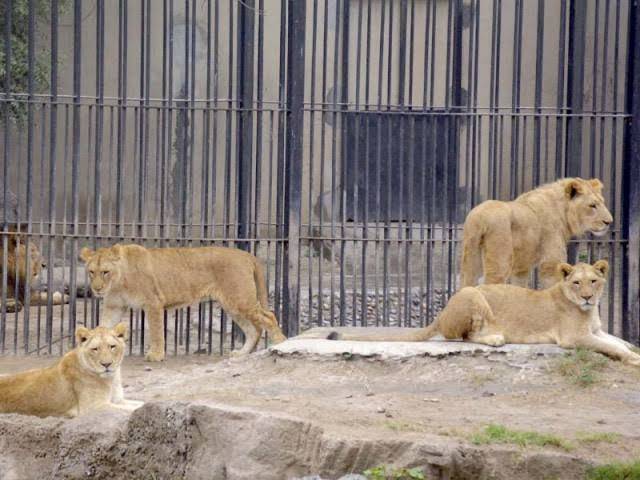
A petition was filed in Lahore High Court the other day on 6 May challenging the constitutionality of Punjab's wildlife law. The Crown Law Chambers led the public interest litigation contending that Section 12 of the Punjab Wildlife Act, 1974, infringes fundamental rights of the wild animals thereby violating Article 9 (Right to Life) in the Constitution.
Due to the Section 12 in the Punjab Wildlife (Protection, Preservation, Conservation and Management) Act, 1974, most of the wild animals have been kept by people for entertainment purpose without their proper supervision and welfare and are often mistreated, tortured or killed. Animals, like humans, are entitled to the right to life.
The petitioners maintain that animals are sentient beings as established by Islamabad High Court in a landmark judgment in Islamabad Wildlife Management Board Case, linking the natural right and welfare of wild animals with the Constitution under the provisions of Article 9 (Right to Life) read with Article 14 (Right to Dignity).
The issue of cruelty to animals was firstly raised in the United Kingdom in 1876 by introducing the Cruelty of Animals Act, 1876 and subsequently, to further develop the concept of welfare of wild animals the Animals Welfare Act, 2006 was enacted there.
In Pakistan, after the judgment in Islamabad Wildlife Management Board Case, much emphasis has been laid down on the rights of animals by observing that the Prevention of Cruelty to Animals Act, 1890 (the “1890 Act”) in fact recognizes the animals natural right not to be treated in a manner that subjects it to unnecessary pain and suffering (unless required for their own welfare).
It is the Constitutional and statutory obligation of the State and its functionaries to ensure that these rights are not infringed.
Due to the Section 12 in the Punjab Wildlife (Protection, Preservation, Conservation and Management) Act, 1974, most of the wild animals have been kept by people for entertainment purpose without their proper supervision and welfare and are often mistreated, tortured or killed. Animals, like humans, are entitled to the right to life.
The petitioners maintain that animals are sentient beings as established by Islamabad High Court in a landmark judgment in Islamabad Wildlife Management Board Case, linking the natural right and welfare of wild animals with the Constitution under the provisions of Article 9 (Right to Life) read with Article 14 (Right to Dignity).
“An animal undoubtedly is a sentient being. It has emotions and can feel pain or joy. By nature each specie has its own natural habitat. They require distinct facilities and environments for their behavioural, social and physiological needs. This is how they have been created. It is unnatural for a lion to be kept in captivity in a restricted area," reads para 7 of the IHC judgment.
The issue of cruelty to animals was firstly raised in the United Kingdom in 1876 by introducing the Cruelty of Animals Act, 1876 and subsequently, to further develop the concept of welfare of wild animals the Animals Welfare Act, 2006 was enacted there.
In Pakistan, after the judgment in Islamabad Wildlife Management Board Case, much emphasis has been laid down on the rights of animals by observing that the Prevention of Cruelty to Animals Act, 1890 (the “1890 Act”) in fact recognizes the animals natural right not to be treated in a manner that subjects it to unnecessary pain and suffering (unless required for their own welfare).
It is the Constitutional and statutory obligation of the State and its functionaries to ensure that these rights are not infringed.
